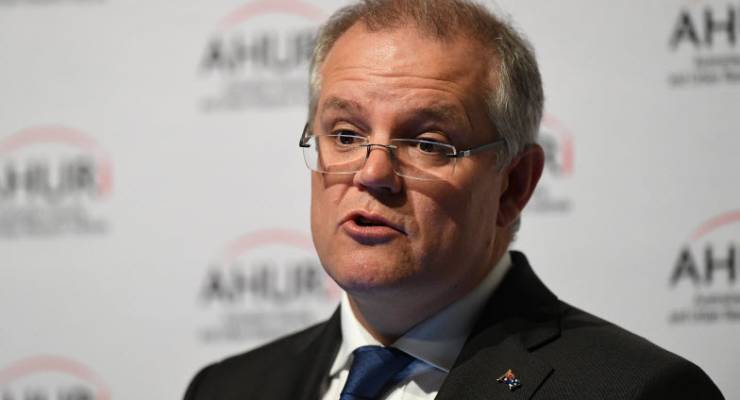
Amid the unfolding disaster that it housing policy, yesterday Treasurer Scott Morrison showed that he gets at least some issues on housing. The guts of Morrison’s speech delivered to a housing body conference was really to confirm something previously flagged — that the government wants to explore ways of getting private investment in social housing (low-cost rental housing for people who would otherwise struggle to obtain accommodation) and affordable housing (low-cost housing for low- and middle-income earners who face being priced out of the rental market, especially in areas that need their skills).
Like his notorious tax reform speech last year, you get the sense this speech was originally intended to have a bit more in the way of announceables. But much of what Morrison said about what is happening on social and affordable housing was eminently sensible and welcome. He accurately described the process by which soaring house prices are driving even young people on high incomes to rent, and keeping young people in rental accommodation longer than previously, meaning low income earners are, in turn, priced out of rental accommodation.
Morrison also explained how, as a Council of Australian Governments report has shown, Commonwealth block grants to the states for affordable housing aren’t achieving their intended goals. And, he might have added, in recent years the NSW and Victorian governments (of both parties) have dramatically cut their spending on social housing. Whereas in the 1990s the NSW government built over a hundred, and often several hundred, social housing dwellings every month, in recent years some months have seen single figure approval levels for public housing — especially after then-prime minister Kevin Rudd handed out big social housing grants as part of his financial crisis stimulus package, enabling the states to “cost-shift” — that is, cut their own spending as the Rudd-funded social housing spend came to an end.
Morrison’s proposed solution is to encourage financing vehicles that mean long-term investors — investors with more patience and less appetite for risk than normal property investors — will look to invest in affordable housing, or lend to entities that will re-lend to community housing bodies, reducing the cost of capital for the latter. It’s smart, innovative stuff, and full credit to Morrison for pursuing it. It won’t touch the sides when it comes to dealing with the bigger issue of skyrocketing house prices, but it’s not intended to address that. But it might mean that the states feel even less obligation to invest on social housing if the private sector moves in.
And when Morrison says “what could be more in the interest of nurses, teachers or police pension fund members than investing in affordable housing for nurses, teachers and police officers?” it makes one wonder why he and the rest of his party are determined to demonise industry superannuation funds — the very entities he’s calling on to investigate such opportunities. Then again, Morrison and the rest of the government routinely vilify industry funds even after they saved Mike Baird’s bacon after Morrison crueled the former’s electricity sale. Still, at least the Treasurer is having a go.








‘Nurses, teachers and police officers’ is fast becoming as annoying as Tony Abbott’s three-word slogans. Are these the same nurses, teachers and police officers who, apparently, have a modest investment property negatively-geared? Sounds like a vicious circle.
As I understand it, most of what the Feds allocate to tasmania for housing goes to interest on what is owed on the state’s debt for the same. Would it not be better to forego the debt?
Why is BK pretending that Scrot is decent enough to give a flying about housing affordability. He didn’t when he attacked gumBoil Shlernt’s weak as piss NG changes, trotting out the hardworking battlers struggling with several properties and he doesn’t now.
There is only one thing he cares about – Morriscum’s survival on the Front Bench.